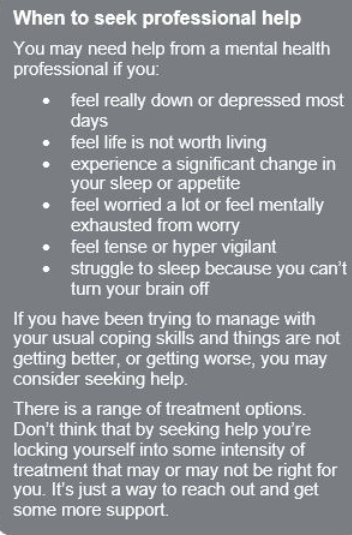 For many of us, the past year has been uniquely stressful. Have you felt especially exhausted, struggled to focus or been more irritable than usual? Maybe you’ve found yourself wondering why you can’t cope with the stress better.
For many of us, the past year has been uniquely stressful. Have you felt especially exhausted, struggled to focus or been more irritable than usual? Maybe you’ve found yourself wondering why you can’t cope with the stress better.
“There are very real, biological reasons why we’re finding it harder than usual to perform,” said Dr. Shannon Simmons, a psychiatrist at Seattle Children’s and medical director of the Psychiatry and Behavioral Medicine Unit. “Under today’s stressors, it’s common to feel fatigued, have a shorter attention span, have a harder time planning things or be more easily irritated and frustrated.”
On The Pulse asked Simmons and Dr. Mendy Minjarez, a psychologist and executive director of Seattle Children’s Autism Center, what parents, caregivers and other adults should know about the stress they may be experiencing and how they can best cope with it.
1. Stress affects your mental and physical health
It’s impossible to separate our physical and mental health, because it’s all biologically related.
Stressful situations trigger physiologic responses, including increases in specific hormones. One of those is epinephrine — part of the sympathetic nervous system responsible for your body’s fight or flight response. It increases your blood pressure and heart rate so your body is ready to face a threat. Experiencing this response long-term can lead to negative health effects.
Cortisol is another stress hormone that gets you ready to deal with threats by increasing blood sugar and helping your body turn off processes that are less important for immediate survival, but in the long term this can cause problems, including increased appetite and decreased immune function.
Evidence of the long-term health impacts of stressful life events can be found in the Adverse Childhood Experiences study. This research shows that the more adverse childhood experiences a person has, the higher their risk for a range of diseases including heart disease, cancer, bone fractures and liver and lung disease.
2. Some stress can help you perform well, but too much will hinder your brain’s ability to function
In many cases, some stress is good. It sharpens our focus and motivates us. If you are preparing for an important test, a little stress and anxiety might cause you to study especially hard, leading to a better performance.
But when you experience too much stress, your ability to cope is compromised and your performance declines. You become increasingly exhausted and your brain cannot function at its optimal level.
For example, your prefrontal cortex — the part of our brain responsible for activities that require greater focus, like planning complex tasks, making decisions and managing impulses — doesn’t function well when your stress hormones increase. Research shows this also has a negative impact on your working memory.
3. Hypervigilance can lead to generalized anxiety
One exhausting aspect of stress is constant worrying. During the COVID-19 pandemic, you may be constantly worried about becoming ill.
You get into a state called hypervigilance, where your brain is on overdrive and you perceive danger all around you.
In this state, anxiety can become heightened and generalized, meaning you might feel anxious about multiple situations or aspects of life. Minor things in the environment — that you might typically ignore — can trigger a fight or flight response. It is mentally and physically exhausting to be in this state long-term, which many people are experiencing today. This is especially true for people who have medical risk factors or have loved ones who are at high risk.
4. Loneliness can pose a risk to your health
One factor that makes the COVID-19 pandemic especially challenging is the layering of loneliness on top of stress.
There are quite a few studies on loneliness and how it can significantly affect specific areas of mental and physical health as well as overall well-being.
We know loneliness and isolation are major risk-factors in suicidality. Statistics from the Centers for Disease Control and Prevention show a concerning increase in suicidal ideation since the start of the pandemic.
During this difficult time, it’s especially important to seek out opportunities for social connection, even if it’s just a Zoom call. Often, when we’re tired or stressed, our inclination is to isolate even more. Instead, when you feel like you want to be left alone, consider pushing yourself to do the opposite — reach out to a friend, call a family member or take a walk around the neighborhood.
5. You can’t “bootstrap” your way through stress
Trying to push through long-term chronic stress is unwise, like suffering through a bone fracture without getting a cast. It’s not effective.
When you’re experiencing stress, you can’t simply pull yourself together to focus better — your focus is literally decreased by physiological and psychological causes. Your memory might also be impacted, as well as other skills that go into making good decisions, whether related to work or home life.
Making sure you’re getting appropriate sleep, nutrition and exercise is important for helping your body manage the physical effects of stress. These things may seem minor or obvious, but think of them as prescribed treatments, like the cast for that broken bone.
 6. Everyone is experiencing the pandemic differently
6. Everyone is experiencing the pandemic differently
If people feel like they’re reacting differently than others around them, that’s understandable. Everyone’s situation is different.
We are all experiencing some stress right now. We may be worried, frustrated or sad; those things are universal. But some people have experienced significant losses — some have lost their jobs or their loved ones to the illness. Some people are dealing with their kids having virtual school on top of working from home, or experiencing significant loneliness due to separation from loved ones.
We also know Black, Indigenous and People of Color (BIPOC) are getting sick and dying at higher rates than white people due to the effects of systemic racism. That is both sobering and frightening.
Finally, traumatic experiences can be cumulative. Depending on what you’ve already been through going into the pandemic, your response may be different than the responses of those around you. You are not alone; there are a number of different responses to these unprecedented events.
7. We all need coping skills to manage stress
It may seem like people around you are handling stress better than you. This doesn’t necessarily mean they can handle more or function on less sleep than you. Remember, everyone came into this pandemic with different experiences and different biology, and people are coping with it differently.
Strategies to cope can be as simple as making lists to help you remember things or pausing to think through the steps before taking on an important task. Take a few minutes here and there during the day to check in with your body and take a few deep breaths or relax your muscles in sequence. Observe your own thoughts, and work on shifting any self-critical ones to more neutral or supportive ones. For example, if you notice yourself thinking you’re a failure because you’re not getting enough done, intentionally reframe your internal narrative — you are doing your best in a very difficult situation.
8. There are things you can do to manage stress
It’s important to have ways to help you continue to move forward in the face of these challenging times.
Start by giving yourself grace and setting reasonable expectations for yourself. Recognize you’re probably not going to feel the way you did or act the way you did a year ago or before the pandemic.
Focus on the basics, like your sleep habits, social connections, physical activity and the structure of your daily routine. While these things sound basic, they are so important for our physical and mental health.
And again, it’s worth repeating: give yourself grace. Don’t be hard on yourself as you try to navigate and cope through this year.
Resources:
- Supporting Mental Wellness and Family Life During COVID-19
- Washington State Department of Health COVID-19 resource: The Ingredients of Resilience
- King County Crisis Line: call 866-4CRISIS for immediate crisis support. Additional information online.
- King County’s Community Support and Well-Being Resources.
- American Academy of Child and Adolescent Psychiatry: Resources for Helping Kids and Parents Cope Amidst COVID-19

